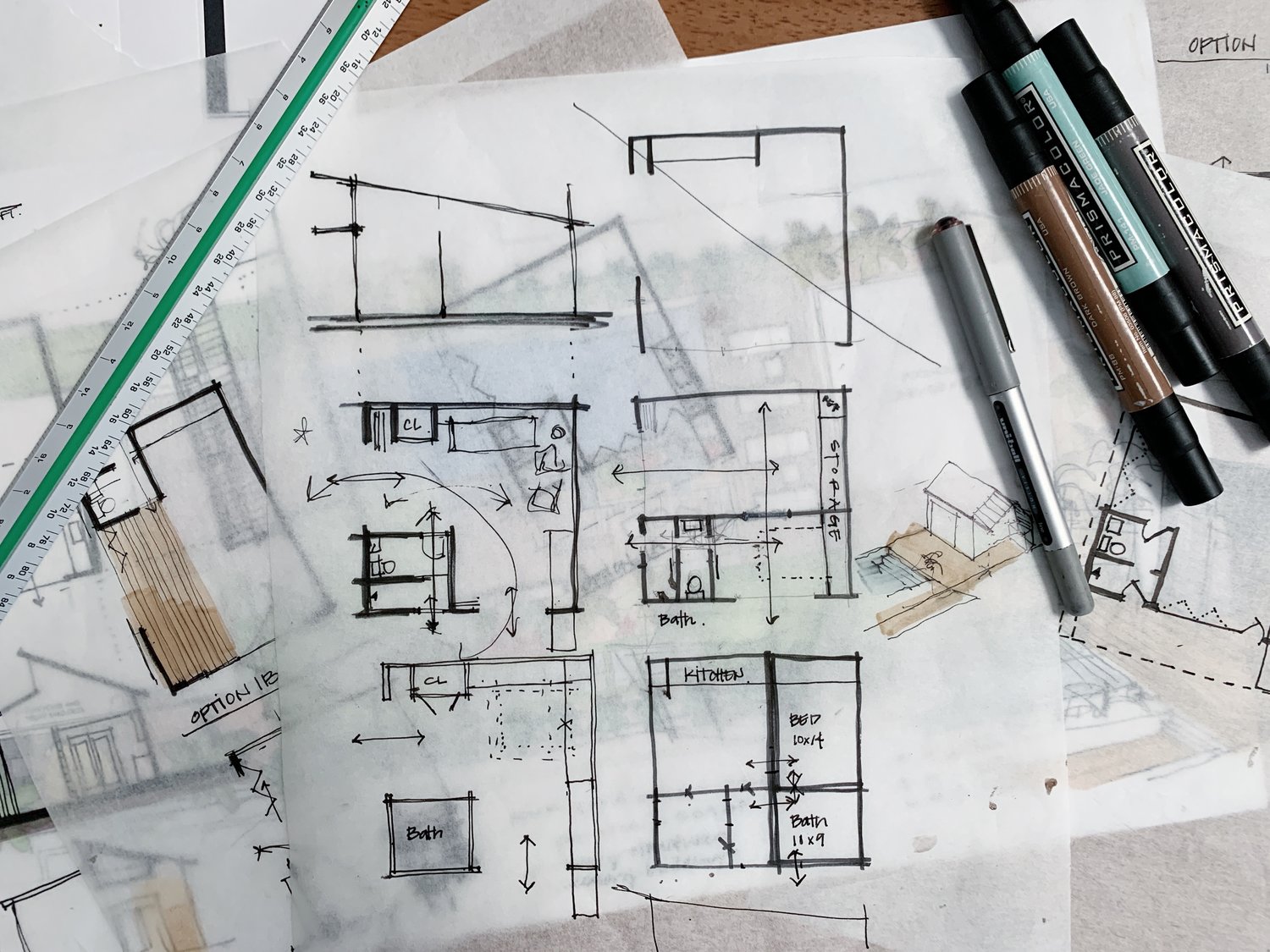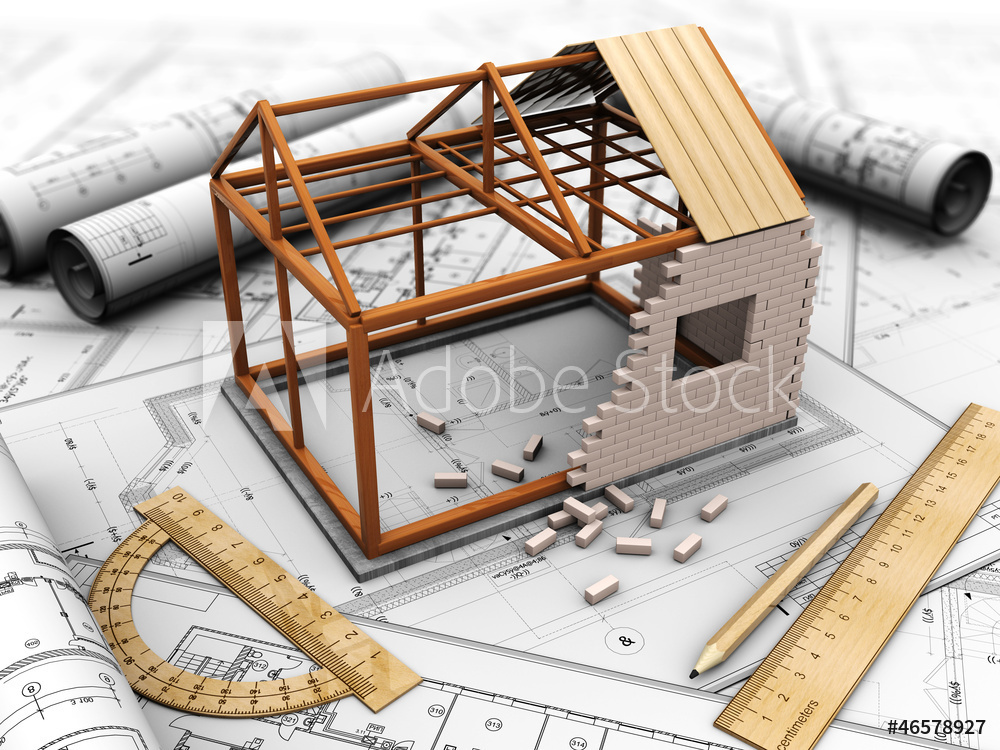Architect Guide to Sustainable Building Materials
Architect Guide to Sustainable Building Materials
Blog Article
Discover the Essential Skills and Top Qualities Every Architect Must Have
As an architect, you recognize that success in your area exceeds simply technological abilities. It has to do with mixing imagination with practicality, promoting cooperation, and taking care of projects efficiently. Each quality plays an important role in your capability to make rooms that influence and work well. What are the certain abilities that can absolutely establish you apart? Let's explore the important characteristics every Architect need to grow to prosper in this ever-evolving occupation.
Imagination and Advancement
Creativity and advancement are at the heart of style, driving the design of areas that motivate and operate perfectly. You'll frequently explore new materials, strategies, and technologies to improve your styles.
You'll additionally attract inspiration from numerous resources-- nature, art, and also day-to-day life can spark fresh ideas. This ability to mix creativity with functionality enables you to attend to complex issues, ensuring your styles satisfy both visual and practical demands.
Solid Interaction Abilities
While making remarkable spaces requires creativity, strong communication skills are just as vital for engineers. You require to communicate your ideas clearly to clients, specialists, and group participants. Paying attention is just as essential; comprehending your client's vision helps you create layouts that absolutely fulfill their requirements.
You'll commonly have to discuss intricate principles in a means that's very easy to understand, whether you're providing a proposal or talking about materials. Efficient communication fosters collaboration, ensuring every person gets on the exact same page throughout the project.
Structure partnerships is necessary, as well. When you establish trust fund and connection, customers are most likely to share their concerns and responses, resulting in better end results.
Lastly, do not underestimate the power of body movement and visual aids. They can boost your message and make your presentations extra appealing. Solid communication skills not just elevate your styles but likewise reinforce your professional connections in the building globe.
Technical Efficiency in Layout Software
As you navigate the ever-evolving world of style, mastering style software program becomes necessary for equating your imaginative concepts into concrete strategies. Acquainting yourself with programs like AutoCAD, Revit, and SketchUp will not only improve your layout capabilities however likewise simplify your operations. These tools enable you to produce thorough illustrations, 3D versions, and also simulations that can help you picture and offer your concepts better.
Exceling in these software application applications likewise improves your partnership with contractors and engineers, as everyone can work from the same digital foundation. Additionally, your ability to adjust to brand-new modern technologies will keep you competitive in the field. Frequently updating your skills and exploring new features can establish you aside from your peers, guaranteeing your designs are specific and innovative. Ultimately, technological effectiveness in layout software program is a foundation of successful architecture, helping you bring your visions to life.
Comprehending of Engineering Concepts

Recognizing engineering concepts likewise allows you to anticipate possible difficulties early in the layout procedure. You can make informed options that enhance your layouts when you're aware of just how different products behave under different conditions. Your styles ought to not only be cosmetically pleasing however also functional and sustainable.
In addition, a strong understanding of design principles allows you to innovate within constraints. You can push innovative borders while still adhering to safety and security standards. Eventually, this understanding enriches your architectural method and establishes you apart in a competitive area.
Job Monitoring Abilities
Effective job monitoring abilities are crucial for designers, enabling you to manage all aspects of a job from conception to conclusion. You'll need to coordinate with numerous stakeholders, consisting of customers, specialists, and designers, making sure every person's on the very same page. Setting clear goals, timelines, and budget plans is essential; it assists you maintain the job on course and within range.
As a designer, you need to additionally be experienced in jeopardy management, determining prospective issues before they escalate. Solid interaction abilities are very important, enabling you to verbalize your vision and inspire Website your team. You'll benefit from being arranged and detail-oriented, as this assists enhance processes and avoid costly hold-ups.
In addition, versatility is crucial; jobs commonly progress, and being flexible allows you to react successfully to modifications. Ultimately, your job management abilities can substantially affect the success of your architectural undertakings, guaranteeing you deliver top quality results on time and within spending plan.
Focus to Detail
While handling projects is essential, your focus to detail can make a significant distinction in the quality of your job. Every line you draw, every product you choose, and every tiny requirements you note adds to the general success of a task. You need to be click here now thorough, making sure that your designs not just meet visual standards however also abide by building codes and regulations.
Missing also a tiny detail can cause costly modifications or safety problems down the line. By growing a keen eye for detail, you boost your ability to identify possible troubles before they intensify. This caution not just saves you time and resources however additionally builds your online reputation as a trustworthy Architect. Remember, it's commonly the smallest information that raise a task from excellent to extraordinary. So, welcome this ability, and let it lead your design process, making certain that your vision is executed flawlessly.
Versatility and Problem-Solving Abilities
As an architect, you'll usually face unanticipated adjustments in layout and task needs. Your capability to accept these shifts and find ingenious solutions is important for success. Remaining versatile in your method not only boosts your problem-solving skills yet additionally keeps your projects on the right track.
Accepting Change in Style
Embracing adjustment in design is necessary for designers, specifically when guiding advancing client requirements and arising technologies. You require to grow adaptability, as tasks frequently change direction based upon new understandings or restraints. Being open to transform allows you to check out cutting-edge techniques and create options that resonate with your customers.
When confronted with challenges, your analytical abilities come right into play. You'll typically require to rethink concepts and adjust strategies on the fly, making sure that the final end result lines up with the client's vision while fulfilling security and governing criteria. By being clever and versatile, you not only boost your styles but likewise develop trust with your customers, showing that you can browse the complexities of contemporary architecture successfully.
Ingenious Solutions to Obstacles

Adaptability in Task Administration
While navigating the complexities of job administration, versatility comes to be an important property for engineers. You'll usually face unanticipated challenges, from layout changes to spending plan constraints, calling for quick reasoning and adaptability. Accepting modification enables you to pivot your techniques and locate cutting-edge options, guaranteeing job success.
Strong analytic skills are vital; they enable you to evaluate situations, evaluate alternatives, and apply reliable services on the fly. When collaborating with diverse teams, being open to responses and different concepts cultivates collaboration and triggers creative thinking.
Frequently Asked Inquiries
What Educational Background Is Required to Become a Designer?
To become an architect, you'll require at least a specialist degree in style, typically a Bachelor's or Master's. Completing an internship and acquiring licensure with examinations is important for your job development.
Just How Important Is Networking in the Design Field?
Networking's essential in architecture. It helps you build partnerships, discover job possibilities, and gain insights from seasoned professionals. By getting in touch with others, you boost your occupation potential customers and stay updated on sector you can try this out fads and growths.
What Are the Usual Job Paths for Architects?
Common job courses for architects include layout functions in firms, project administration, city planning, and specialized areas like sustainable architecture. Architect. You might also discover mentor or consulting, depending upon your experiences and rate of interests
Exactly How Can Engineers Remain Upgraded With Market Patterns?
To stay updated with market trends, you need to regularly attend meetings, sign up with specialist associations, register for relevant magazines, and engage with on the internet discussion forums. Networking with peers also aids you get insights right into arising growths in style.
What Duty Does Sustainability Play in Modern Design?
Sustainability shapes modern style by stressing energy efficiency, source preservation, and environment-friendly materials. You'll create spaces that minimize ecological effect, improve owner health, and react to climate challenges, making your layouts a lot more appropriate and impactful.
While making impressive areas needs creativity, solid communication abilities are simply as critical for designers. Solid interaction skills not just elevate your designs however also reinforce your expert relationships in the building globe.
Efficiency in design software program lays the groundwork for a much deeper understanding of engineering concepts, which is vital for architects.As a designer, you'll frequently encounter unforeseen adjustments in style and task demands.Welcoming change in style is essential for engineers, particularly when steering advancing client requirements and arising modern technologies.
Report this page